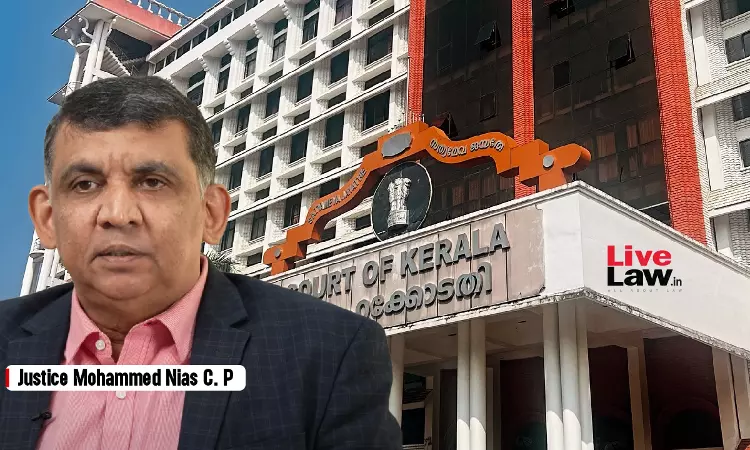- Home
- /
- High Courts
- /
- Kerala High Court
- /
- Lok Adalats Don't Have Inherent...
Lok Adalats Don't Have Inherent Power Of Review On Merits U/S 22D Legal Services Authorities Act: Kerala High Court
K. Salma Jennath
13 May 2025 5:29 PM IST
While hearing a Writ Petition before it, the Kerala High Court held that Section 22D of the Legal Services Authorities Act, 1987 does not grant the power of review on merits to Permanent Lok Adalats established under the Act.The Writ Petition was preferred challenging the decision of the Lok Adalat, which found that it does not have the power of review under Section 22D of the Act to...
While hearing a Writ Petition before it, the Kerala High Court held that Section 22D of the Legal Services Authorities Act, 1987 does not grant the power of review on merits to Permanent Lok Adalats established under the Act.
The Writ Petition was preferred challenging the decision of the Lok Adalat, which found that it does not have the power of review under Section 22D of the Act to reassess evidence already appreciated and concluded.
Justice Mohammed Nias C.P. refused to concur with the judgment of the Punjab and Haryana High Court in Estate Officer v. Charan Kaur and Others, which held that the review procedure under the Legal Services Act is more liberal than the one provided under the Code of Civil Procedure.
Distinguishing the aforesaid judgment, the Single bench found that the right to prefer a review petition is not inherent and must be conferred by a statute. It observed thus:
“The Permanent Lok Adalat, established under the Act of 1987, is not a court with plenary powers and cannot operate outside the Act or exercise powers not expressly granted by law. The right to seek review is not a natural or fundamental right, as such power must be explicitly conferred by legislation. There is no inherent power of review unless provided by law, and a clear distinction exists between rectification and review, with review needing statutory authorisation. The Tribunal's power of recall does not equate to rehearing for errors in judgment or a relitigation of merits but allows for correction of procedural errors, such as failure to serve necessary parties or instances of fraud. It is trite that a review on merits requires specific statutory permission, while procedural review, addressing fairness issues, is inherent in all adjudicatory bodies. A review on merits, which involves re-examining the correctness of a decision, can only be exercised if specifically permitted by law.”
The Court referred to the judgment of the Apex Court in Kapra Mazdoor Ekta Union v. Birla Cotton Spinning & Weaving Mills Ltd. & Anr. and explained that only in cases of procedural irregularity can an order or award of a Court or Tribunal can be recalled if there is no express provision or necessary implication vesting power upon the Court or Tribunal.
Dismissing the writ petition, the Single Judge held that the present case seeking reassessment of evidence amounted to a review on merit rather than a procedural review and therefore, cannot be entertained in the absence of specific provision granting power to the Lok Adalat.
Case No: WP(C) No. 27890 of 2018
Case Title: Prakash Sankar v. BSNL and others
Citation: 2025 LiveLaw (Ker) 272
Counsel for the Petitioner: Sethunath V. and Manoranjan (Muvattupuzha) V.R.
Counsel for the Respondents: Mathews K. Philip and Sudhish R., Standing Counsel for BSNL
Govt. Pleader Sri. Dheeraj A.S.- Addl. R2 and R3



